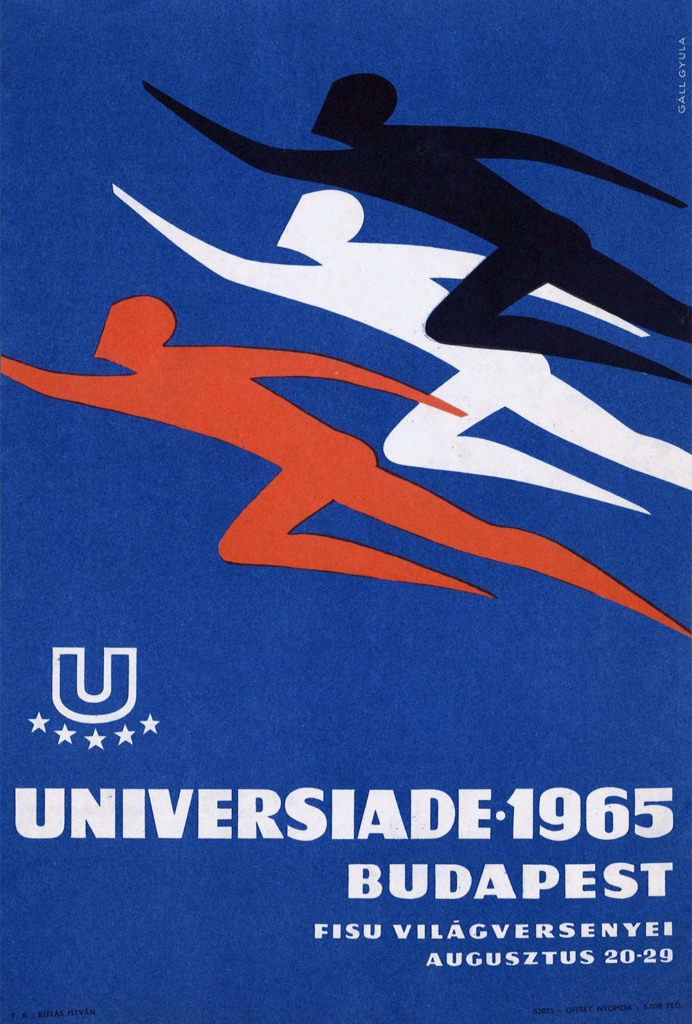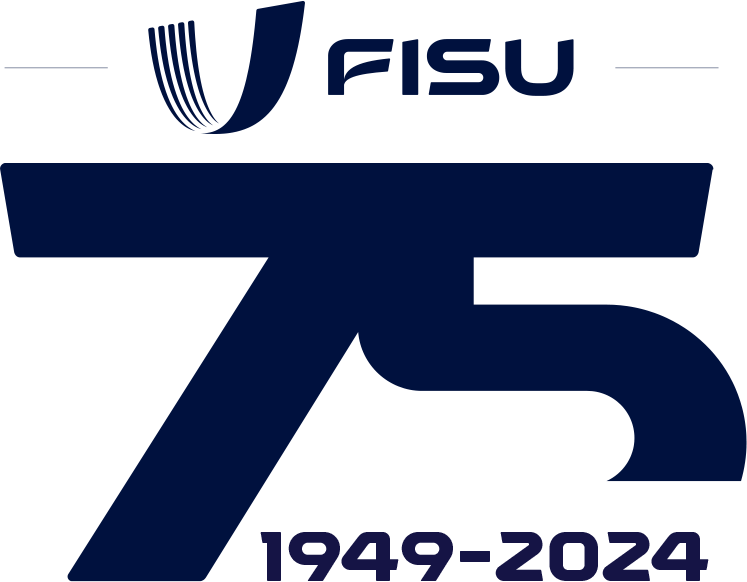Building on the success of Porto Alegre two years earlier, the 1965 Summer Universiade, held in the Hungarian capital of Budapest, continued to extend its reach around the globe with an additional five nations joining the fourth edition of the Games.
Among the newcomers to the fast-growing party was the United States, which would go on to snare a total of 12 gold medals – seven in swimming, four in diving and one in the basketball competition – trailing only the host country in the medals table and levelling the Soviet Union, which had topped the standings at the previous two Universiades in Sofia, Bulgaria, and Porto Alegre, Brazil, in 1961 and 1963, respectively.

The American arrival at the Universiade proved to be a catalyst the Games needed for its further internationalisation and was met with open arms by the founder of the world university sports movement, Jean Petitjean.
“The competitions here are a landmark in the history of the Games because of the participation of the American students,” the Frenchman said. It was the first time the USA has sent a serious delegation, 41 athletes in total, whereas there were only three American athletes at Torino 1959 and none at the 1961 and 1963 events.
Hungary overcame tremendous financial hurdles in staging the Universiade, after investing heavily in taking part in the Tokyo Olympic Games held one year earlier. The Hungarians, though, managed to pull off the feat by drawing on their organisational experience and rich sporting tradition.
Nearly twice the number of athletes from Porto Alegre competed in the fourth Universiade – up to 1,729 entries – where athletics shone in particular. It featured a field that included some of the day’s biggest stars, such as Randy Manson of the United States in the men’s shot put; Poland’s Irena Kirszenstein (women’s 100 and 200 meters); Canada’s Bill Crothers (men’s 800m); American decathlete Bill Toomey; Soviet long jumper Igor Ter Ovanesian; John Pennel of the US in the pole vault; and Italian hurdlers Roberto Frinolli and Eddy Ottoz.
Behind Hungary, the Soviet Union and the United States in the medal standings was Japan, which captured five gold medals ahead of it becoming the host nation of the next Universiade two years down the road in Tokyo.
The legacy of Budapest, however, was that it cemented a notion that the Universiade now only trailed the Olympic Games in terms of recognized global multisport events.
Extracts of Mr. Gagea’s (Romania) souvenirs from Budapest’65
I do not believe anyone would have thought that I could win a medal at the Universiade. First of all, the favorite for the shot-put event was the Olympic vice-champion and world record holder, the American Randy Matson, who used to frequently throw the weight at distances of 20-21 meters, while myself, although, I was the best in my country at that time, I was throwing only as far as 16-17 m! Matson would have defeated me blindfolded or with one broken arm, so a real confrontation was really not taken seriously into consideration. However… here’s what happened!
During the qualification day there was such torrential rain that almost all of the athletic installations were floating in water; the competition was interrupted, and some of the events were postponed to the second day. Fortunately I had succeeded just before the deluge had started in performing a good throw and in qualifying for the finals, while other formidable adversaries from East Germany or from the USSR could not qualify because they had failed their throws on the grounds that the shot was sliding.
I often recall in my memories the Budapest Universiade. Not only because this was the first one out of the 27 in which I have participated, but especially because it gave me the opportunity to meet people who believed in ideals, some of which later became FISU slogans, such as: “Excellence in Mind and Body”, “Sport Stars of Today, Leaders of Tomorrow” etc.
I remember the basketball finals, the game between the USA and the USSR, which required the mobilization of a huge number of volunteers and even mounted police troops. The streets around the basketball arena were full of people wanting tickets, there was an indescribable noise and what seemed to be provocative was that every Hungarian was cheering for the American team… It was a form of exaltation of the public, a manifestation of an appreciation for top performance and for athletic glory, at any rate far from the fanaticism of today’s fans of the football/soccer teams.
